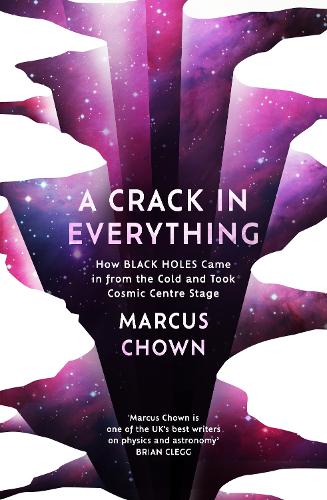
A Crack in Everything: How black holes came in from the cold and revealed themselves masters of the universe
(Hardback)
Available Formats
Publishing Details
A Crack in Everything: How black holes came in from the cold and revealed themselves masters of the universe
By (Author) Marcus Chown
Bloomsbury Publishing PLC
Apollo
1st October 2024
6th June 2024
United Kingdom
Classifications
General
Non Fiction
Popular astronomy and space
523.8875
Physical Properties
Hardback
352
Width 162mm, Height 236mm, Spine 40mm
580g
Description
What is space What is time Where did the universe come from The answers to mankinds most enduring questions may lie in sciences greatest enigma: black holes. A black hole is a region of space where gravity is so strong that nothing, not even light, can escape. This can occur when a star approaches the end of its life. Unable to generate enough heat to maintain its outer layers, it shrinks catastrophically, its gravity intensifying to the point of collapse. When this phenomenon was first proposed in 1916, it defied scientific understanding so much that Albert Einstein dismissed it as too ridiculous to be true. But scientists have since proven otherwise. In 1971, Paul Murdin and Louise Webster discovered the first black hole: Cygnus X-1. Later, in the 1990s, astronomers using NASAs Hubble Space Telescope found that not only do black holes exist, supermassive black holes lie at the heart of almost every galaxy. It would take another three decades to confirm this phenomenon. On 10 April 2019, a team of astronomers made history by producing the first image of a black hole. In A Crack in Everything, award-winning writer and broadcaster Marcus Chown author of the bestselling Quantum Theory Cannot Hurt You reconstructs this extraordinary journey, a triumph of scientific theory and physical observation. Featuring in-depth interviews with key scientists at the forefront of mind-bending research, this is a compelling and brilliant work of popular science, with all of Chown's trademark lightness of touch, wit and enthusiasm.
Author Bio
Marcus Chown is an award-winning science writer and broadcaster. He is Cosmology Consultant at New Scientist and was previously a radio astronomer at the California Institute of Technology in Pasadena. His non-fiction books include Breakthrough, What a Wonderful World, Quantum Theory Cannot Hurt You and The Ascent of Gravity, which was The Sunday Times Book of the Year. In 2011, Chown launched the Solar System app for iPad, which won The Bookseller Digital Innovation of the Year.
